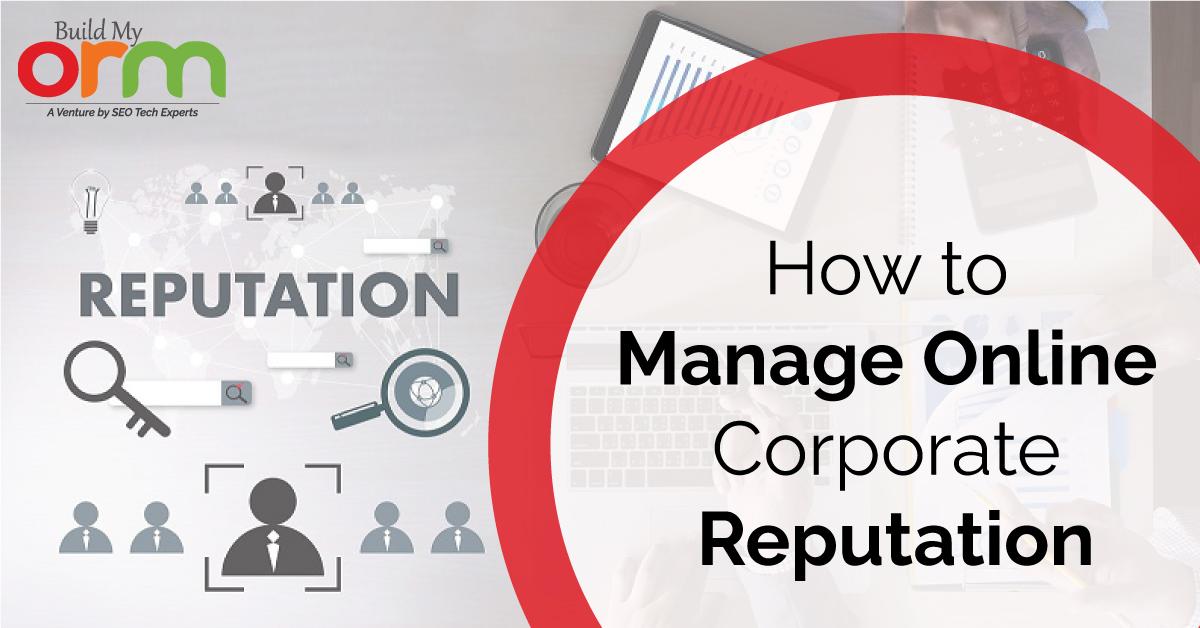Online corporate reputation management is beneficial to businesses of all sizes and industries. This supports the idea that today's consumers rely their buying choices on brand or corporate reputation, perhaps even higher than on advertising, direct sales messages, pricing, or promotional content.
What Is the Importance of Online Corporate Reputation Management?
What consumers and organizations know and think about your firm is your corporate reputation? It's what drives brand interaction and determines your industry and market position.
Stakeholders utilize your reputation to assess your strengths, examine your flaws, and determine where and how they should take your company.
It's much more challenging to attract new consumers, create customer loyalty, or discover the talent you need to innovate and manage an effective operation if you don't have an excellent online corporate reputation.
A solid business reputation:
- ✔️ Users are more likely to assume you if you have honesty.
- ✔️ Enhances your online presence in your business
- ✔️ Attracts top-tier job seekers and boosts staff retention
- ✔️ Defends your brand in the event of a crisis or an attack.
- ✔️ Enhances the image of a company that vendors, suppliers, and partners desire to work with.
- ✔️ In short, a positive brand image is essential for attracting the consumers, employees, and executives who will help your firm flourish.
However, when negative internet reviews, discussion boards, news articles, and social feeds appear, favorable brand perception may swiftly devolve into a public relations nightmare, compromising your brand's integrity and leaving you to pick up the pieces.
When this happens, it's essential to take a hard look at your company's online reputation management strategy.
The following are some of the elements of a thorough and robust corporate reputation management strategy:
- ✔️ Locating every mention of your company on the internet
- ✔️ Conducting an in-depth examination of your digital footprint
- ✔️ Identifying dangers and eliminating potentially harmful information
- ✔️ Maximizing positive things that are currently on the internet
- ✔️ Content creation and curation that promotes your business and values
- ✔️ Continuous monitoring and upkeep of your company's online presence
The Secrets to Managing Your Company's Online Reputation
Corporate reputation management usually entails a variety of methods aimed at influencing consumer perceptions of your company.
1. Pay attention to feedback from clients.
Clients, employees, stakeholders, and local communities are all people who support a company's reputation. Thus, companies must listen to them. The ability of your staff to listen to clients, in particular, is crucial. Data from online reviews is vital for understanding and improving the consumer experience. You may learn what clients are talking about and how they genuinely feel by monitoring, collecting, and evaluating online reviews. New online technologies can help you take your feedback management to the next level by revealing insights to your team that would otherwise be undetectable to the naked eye.
2. Pay attention to the customer experience
One of the simplest methods to build an online corporate reputation is to provide clients with an experience worth talking about. Clients will be pleased to spend more money with your business and even suggest it to their friends if you give an experience that exceeds their expectations. On the other hand, unhappy clients are soon forgotten, and they may leave a negative review or urge others to avoid your business, which can have long-term consequences for your brand. After all, user reviews reveal that unpleasant experiences from two or more years ago still influence 46% of consumers' buying decisions.
It's critical to perceive things from the customer's perspective and connect their experience to the company's intended outcomes and reputation. Your team will be able to assess and respond to customer feedback online more effectively with the help of experience analytics, which will result in better customer experiences and higher customer acquisition rates.
3. Establish a reputable employer brand
The capacity to acquire and retain top personnel is also determined by the current health of your brand's corporate reputation. Today's executives recognize that having a great employer brand is one of the keys to their company's success and growth, which is why it is a top priority for them. Consider the following:
According to consumer reports, 84 percent of employees and work-seekers hold a company's reputation as an organization of decision when considering where to apply for a job.
In other words, developing an employer brand strategy for your organization entails more than simply posting job opportunities on social media or creating a fancy Careers page. Your staff must completely comprehend your company's value proposition, cultivate an organizational culture, and begin asking for reviews and listening to employee input on a proactive basis. Considering the time to hear what workers have to say can reveal how people perceive the company's reputation both internally and internationally.
4. Participate in community outreach activities
While it may not be clear how disaster relief efforts, charity events, or plastic-free campaigns online can lead to increased market value or improved consumer brand perception, community outreach — and simply being great corporate immigrants in common — is critical for effective corporate reputation management. Companies that can demonstrate their ethics and dedication to the community are more likely to have a positive corporate reputation and attract clients who care enormously about what a company stands for. Creating content that corresponds to the current mood. Some situations call for more severe thinking tones, while others allow for a more casual or light-hearted message.
5. Make a Crisis Plan
Your company's next potential catastrophe might not be a viral sensation. It may be a critical online review, a disgruntled ex-employee venting their frustrations on social media, or a brief but powerful social media narrative.
During these emergency moments, it is critical to devise and carry out a strong plan of action. The following are examples of activities:
- ✔️ Taking proactive rather than reactive measures
- ✔️ Identify and resolve essential consumer issues.
- ✔️ Build relationships with social media and promote goodwill.
- ✔️ Learn how to deal with unfavorable feedback.
- ✔️ When publishing crucial external materials, consult your PR and legal departments.
Conclusion: Using these methods for an online corporate reputation management plan, you may develop various projects and campaigns to improve the company's reputation among clients and employees. This strategy will yield an impressive online reputation, more loyal clients, and higher revenue if it takes advantage of today's technology and carefully listens to consumer feedback. The strategy will yield an impressive online reputation, more loyal clients, and higher revenue with enough time and investment.
Lastly, Build Your ORM is the one-stop destination online corporate reputation management company that can help you build a solid reputation over time.



